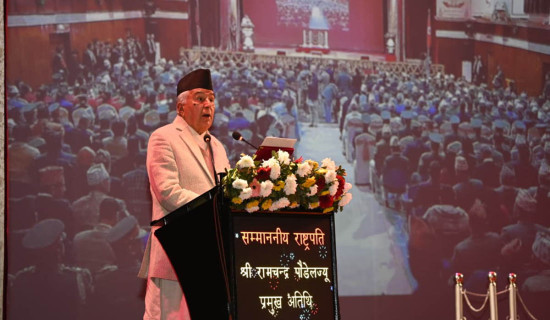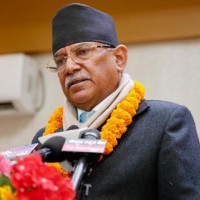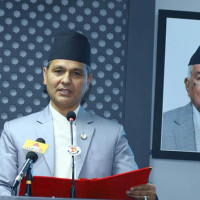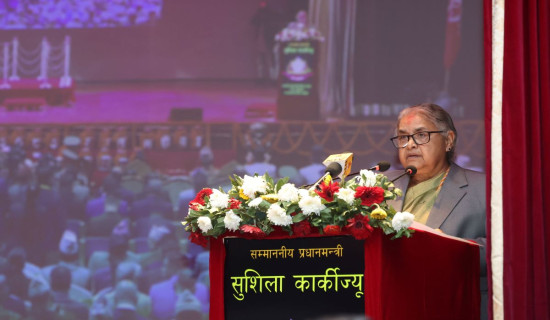- Saturday, 24 January 2026
Enabling Safe Mobility
In a world where more than 1.19 million people die every year due to road crashes, according to the World Health Organization (WHO), addressing road safety has become an urgent global imperative. Road crashes, not accidents — because crashes are preventable and not mere chance events — have devastating consequences, not only in human lives but also in health systems, economies, and the future resilience of nations. The recently concluded 3rd International Transport Conference, held from 11–13 April 2025 at Hotel Yak and Yeti in Kathmandu, marked a significant step towards rethinking mobility under the theme “Towards Safe, Sustainable, Efficient, and Resilient Mobility.”
The event saw participation from representatives and professors of 16 countries, and a remarkable 45 technical papers were presented across three intensive days of dialogue, debate, and vision-setting. Globally, road crashes are the leading cause of death for children and young adults aged 5–29 years, as reported by the WHO. The economic burden is staggering: low- and middle-income countries lose around 3 per cent of their gross domestic product (GDP) annually to road crashes. Health systems bear the brunt through the loss of workforce productivity, long-term disability, and increased demand for trauma care.
In Nepal, the situation is no less alarming. The Ministry of Physical Infrastructure and Transport reports that over 2,700 people lose their lives on Nepali roads each year, with thousands more seriously injured or disabled. The WHO’s Global Status Report on Road Safety (2023) ranks Nepal among the countries facing a high risk of road deaths relative to population. Despite efforts, road safety has not yet been integrated into mainstream development planning at the level it deserves.
The economic losses in Nepal are severe: estimates suggest that road crashes cost the country approximately 2 per cent of its GDP annually. Beyond the numbers lie human tragedies — families pushed into poverty, children losing breadwinners, and an overburdened healthcare system struggling to cope. One notable shift emerging from the Kathmandu conference is the deliberate choice of language. The word "accident" implies inevitability; "crash" acknowledges human error, infrastructure faults, vehicle conditions, and enforcement gaps — factors that can be addressed and corrected. This shift is not cosmetic; it is a fundamental reframing that aligns with the modern road safety vision.
As the conference resolutions powerfully articulated, achieving safer roads requires evidence-based planning, the use of new technologies, robust crash data collection systems, and an inclusive approach that brings local knowledge and climate resilience into transport planning. The resolutions adopted at the conference stressed the following: developing a digitised, geo-referenced road crash data system, prioritising climate-resilient, inclusive, and safe infrastructure, particularly in Nepal’s hilly and rural areas, enhancing coordination among federal, provincial, and local authorities, promoting public transport, non-motorized transport, and smart traffic management, mobilising private sector participation in financing road safety measures, and institutionalising comprehensive impact assessments for all transport projects.
The resolutions are a clarion call for Nepal’s policymakers: road safety must be at the core of transport and land-use planning, not an afterthought. If Nepal earnestly implements the resolutions born from this gathering of global and national experts, it can chart a new path towards saving lives and creating a more sustainable, resilient transport future.
But it requires political will, investment in institutional capacities, public-private collaboration, and above all, a societal acknowledgment that road crashes are preventable tragedies, not inevitable misfortunes. Every crash averted saves not only a life but also preserves a family's stability, a community’s health, and a nation's economic momentum.

















